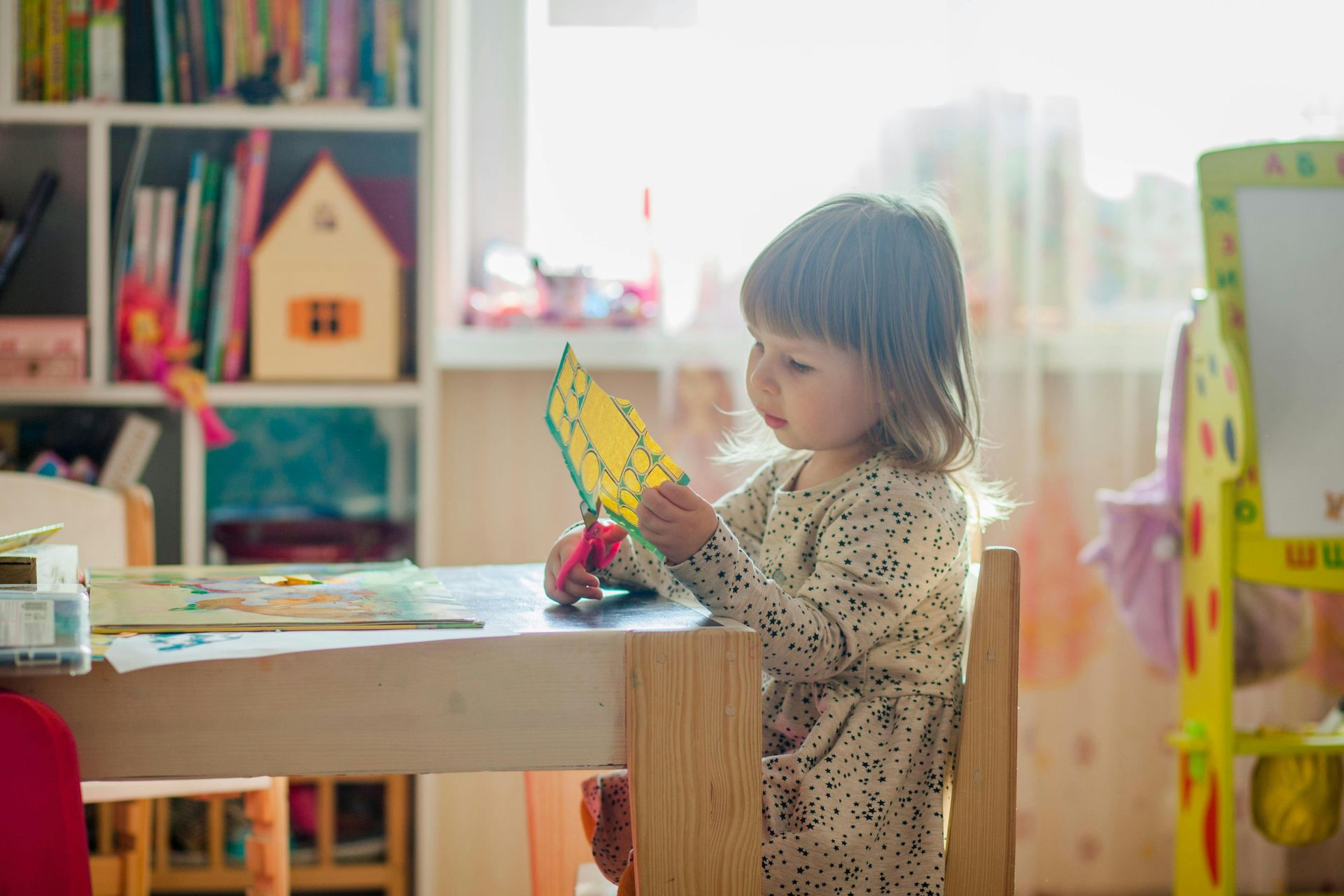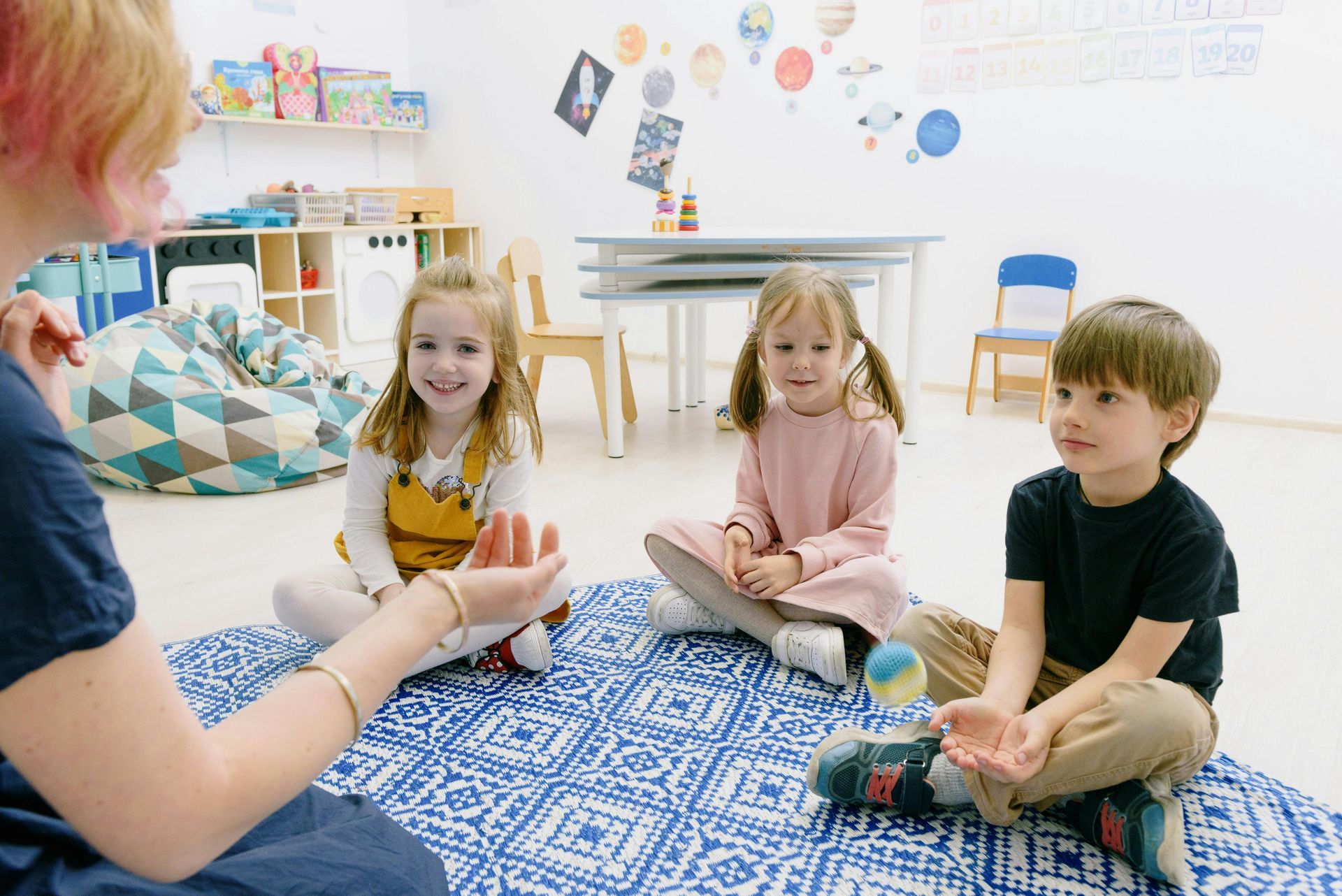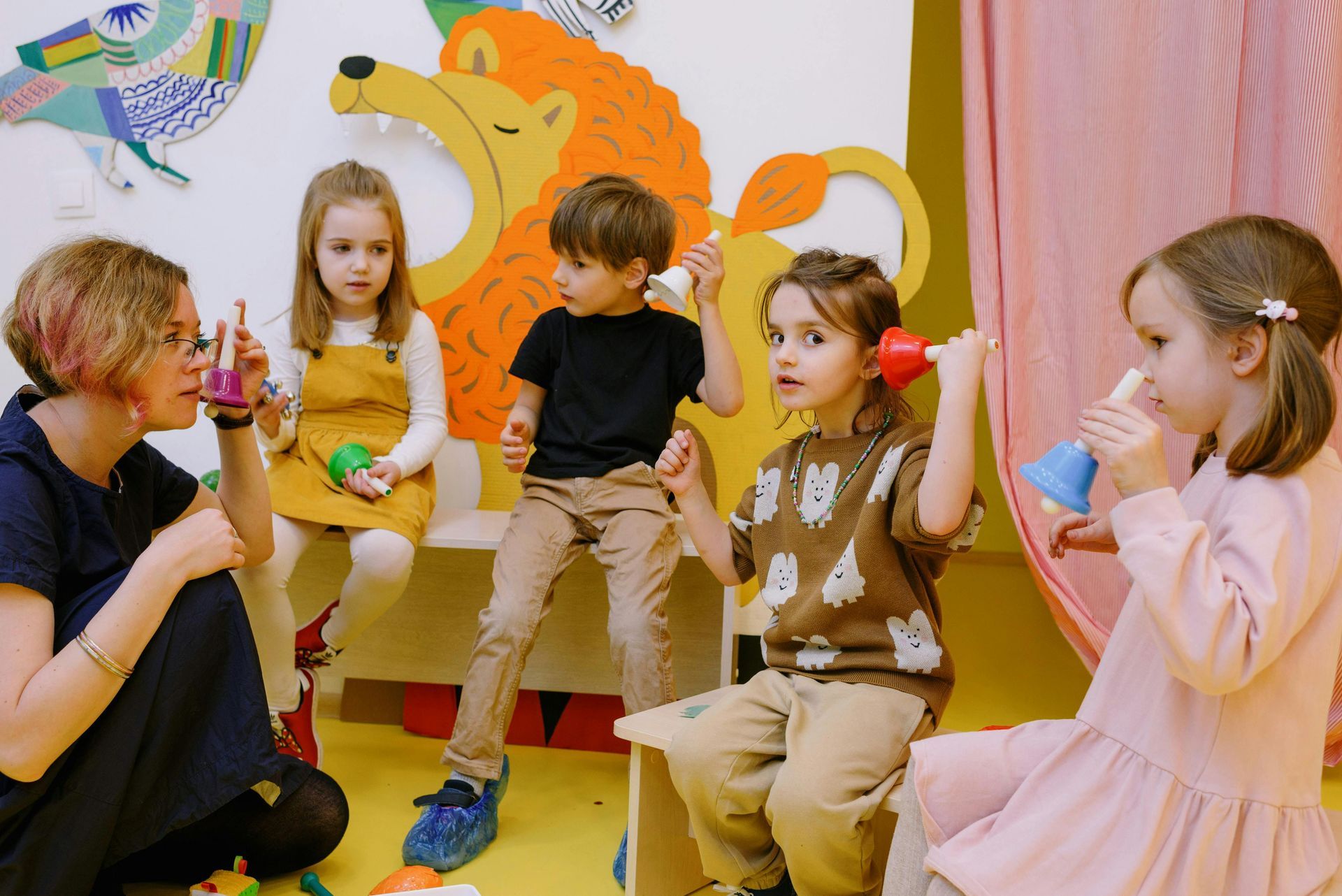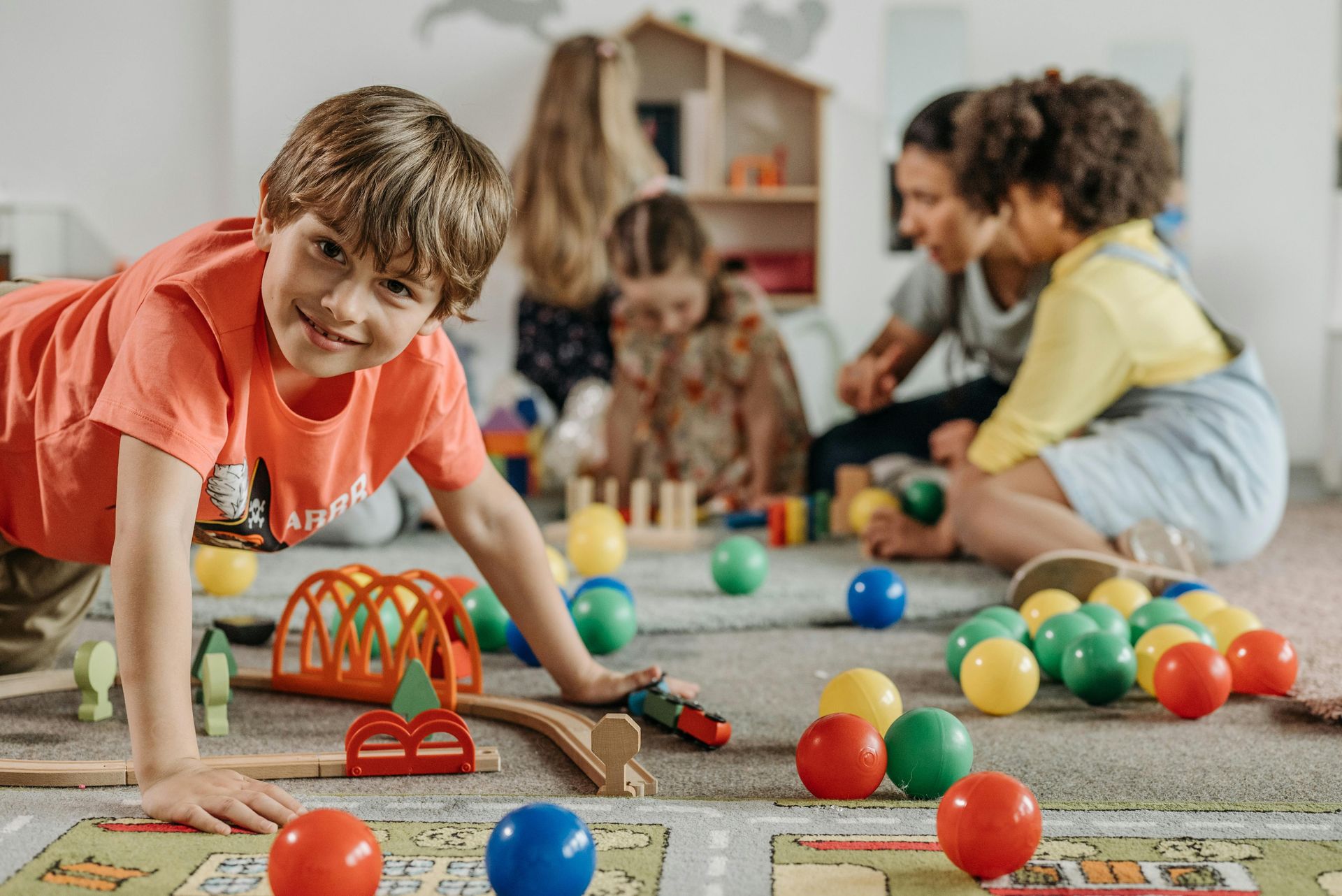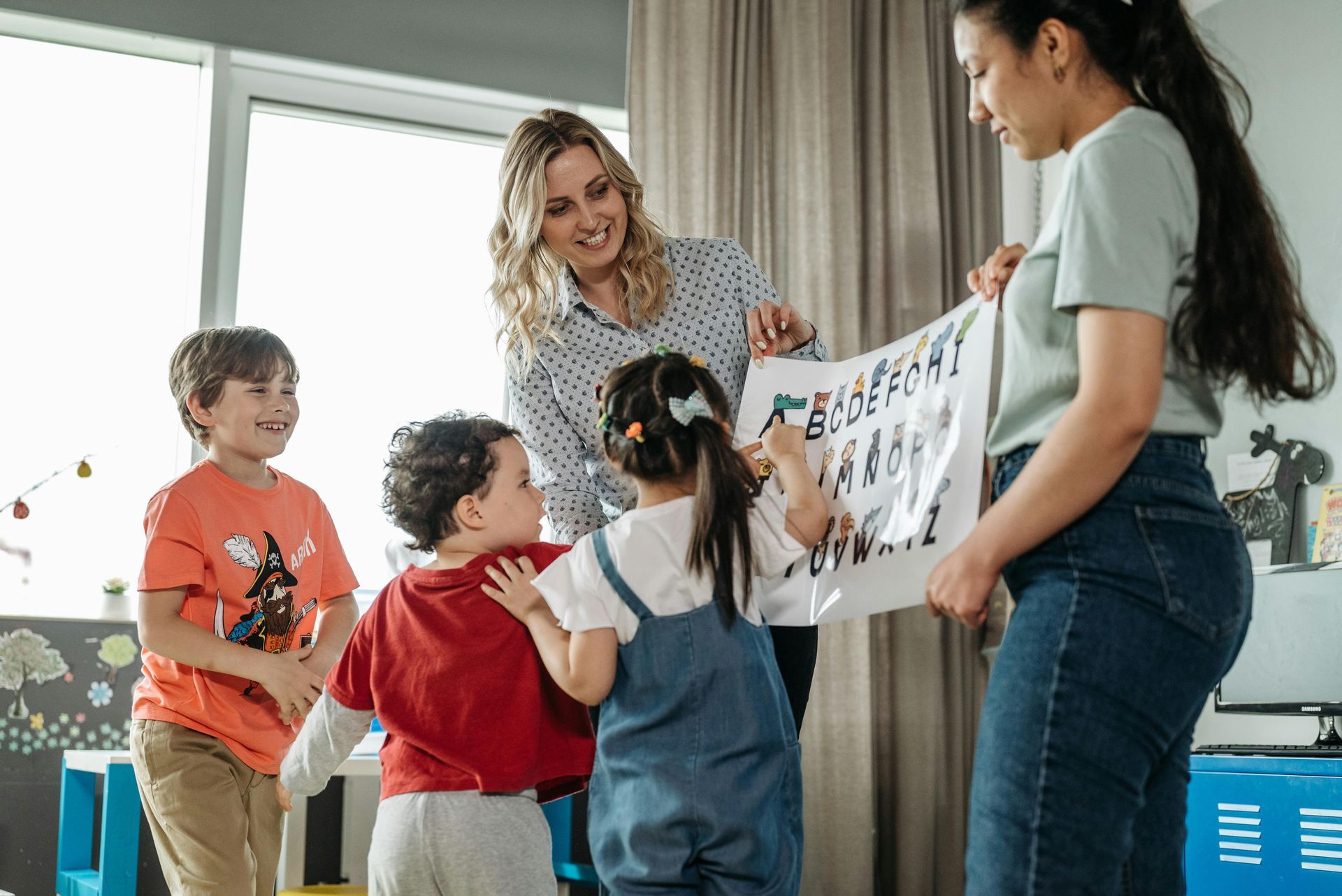The Importance of Play in Building Lifelong Social Skills
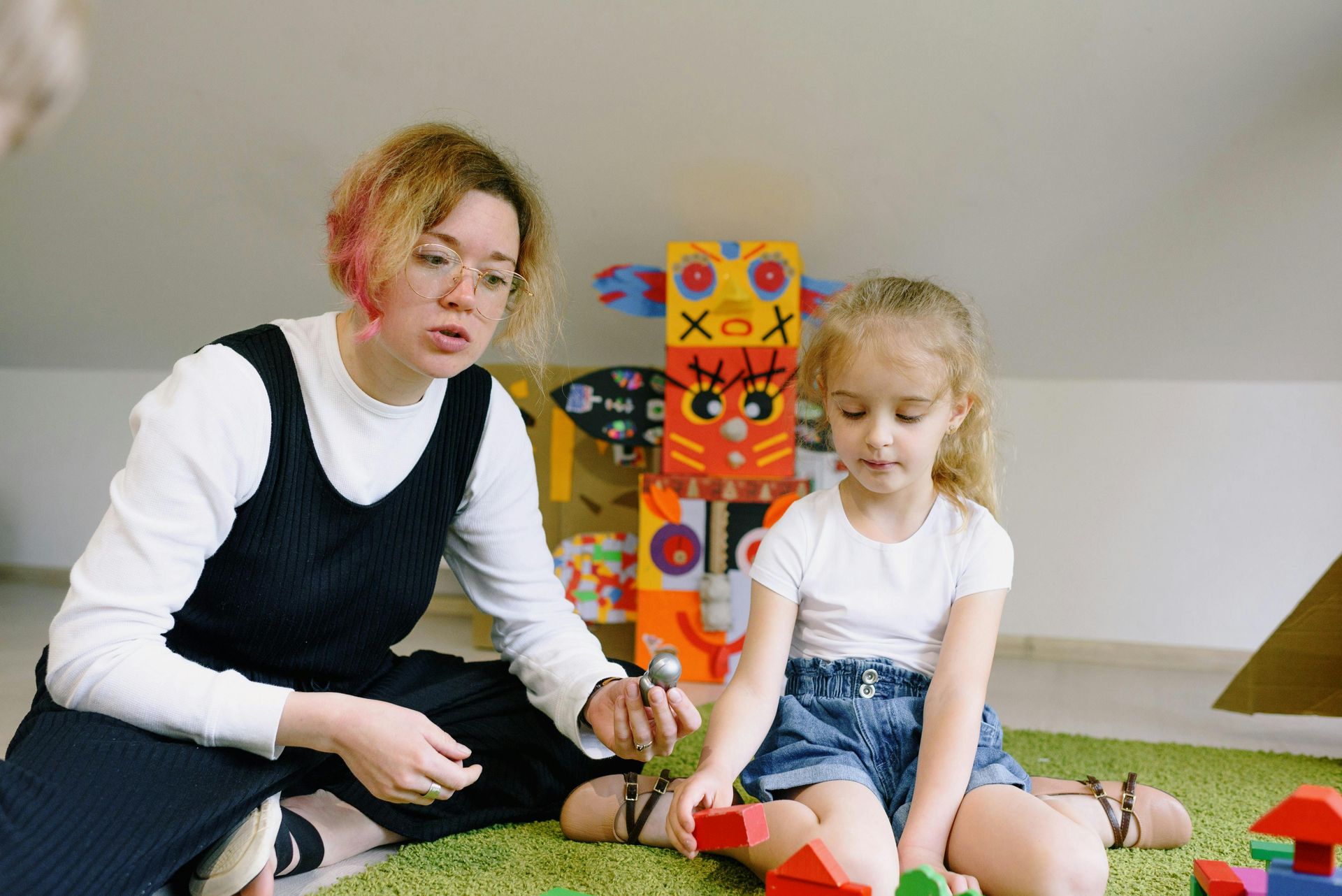
Introduction
In a world that is increasingly interconnected, the importance of social skills cannot be overstated. From teamwork in school to building relationships in adulthood, how we interact with others shapes our lives. At
Playtime Academy, we understand that play is more than just fun—it’s a critical platform where children learn and refine their social skills. In this post, we’ll explore how play fosters essential social abilities in young children, laying the foundation for meaningful relationships and communication skills that last a lifetime.
Why Social Skills Matter Early On
Social skills are the tools we use to communicate, interact, and work with others. For children, these skills are pivotal to forming friendships, succeeding in academic environments, and navigating the complexities of social dynamics. The earlier children learn to communicate, cooperate, and understand others’ perspectives, the better equipped they are for the challenges of growing up.
While children can develop social skills through structured lessons, play offers a far more organic and effective environment for learning. Here’s how:
1. Play Facilitates Cooperation
Cooperative play is a natural part of early childhood experiences. Whether it's playing a team-based game, building a tower with blocks, or even sharing toys, children constantly engage in opportunities that require cooperation. At
Playtime Academy, we encourage this type of play every day because it teaches children essential lessons in teamwork, sharing, and listening to others. These cooperative experiences help children develop skills in negotiation and compromise, key elements of successful social interactions.
- Example: In a group game of “Simon Says” or building a structure together, children must listen carefully, follow directions, and sometimes adjust their approach based on input from peers. This teaches them how to work together harmoniously, even when there are differences in opinions or approaches.
2. Learning Empathy Through Play
Empathy—the ability to understand and share the feelings of others—is an essential social skill that is often best learned through play. By stepping into different roles and situations during playtime, children learn how others might feel in various contexts, which helps them to respond thoughtfully to others' emotions. This ability to put oneself in another person’s shoes is crucial in forming lasting, positive relationships.
- Example: When playing pretend games, children often take on roles such as a parent, teacher, or doctor. In doing so, they learn to care for others, comfort those who are upset, and work toward solutions in emotional situations. This enhances their emotional intelligence and lays the groundwork for empathy-based interactions later in life.
3. Enhancing Communication Skills
Through play, children practice communication in all its forms—spoken, non-verbal, and sometimes even artistic. Whether through conversations during playtime or using gestures to indicate needs, play teaches children how to express themselves clearly and appropriately in different situations.
- Example: When children are asked to describe a story they’re creating in their imaginative play, they practice organizing their thoughts, articulating them clearly, and using appropriate vocabulary. This helps boost their verbal communication and ability to hold meaningful conversations with peers and adults alike.
4. Play Provides Opportunities for Conflict Resolution
No social interaction is without conflict, and how children handle disagreements can significantly influence their social development. Play, especially cooperative and competitive games, presents natural scenarios where conflicts arise. These instances offer children the chance to practice problem-solving, negotiation, and conflict resolution in a low-pressure environment.
- Example: In a shared play scenario, if two children want the same toy, they must figure out how to either share or take turns. This teaches them that conflict is a normal part of socializing and provides them with the tools to handle disagreements in a healthy, constructive way.
5. Building Confidence in Social Settings
Children who engage in various social interactions during playtime often build the confidence to approach new people, participate in group activities, and express their thoughts without fear of judgment. Regular play offers repeated opportunities for children to test their social boundaries in a supportive and playful environment, helping them become more self-assured in their interactions with others.
- Example: In group play situations, children may find themselves in leadership roles or asked to take charge of an activity. This boosts their self-esteem and gives them the confidence to step up in social situations outside of play.
How Playtime Academy Fosters Social Skills Through Play
At Playtime Academy, we understand that social development is just as important as academic achievement. That’s why we’ve integrated multiple play-based strategies into our curriculum, all aimed at fostering social skills:
1. Structured Group Activities
We regularly organize group activities like team-based games, collaborative art projects, and circle-time discussions to promote social interaction. These activities not only support academic learning but also encourage teamwork, communication, and empathy.
2. Social-Emotional Learning (SEL) Activities
SEL is a cornerstone of our educational philosophy. Through role-playing, storytelling, and even simple classroom discussions, we actively teach children how to recognize and express emotions, as well as how to interact with their peers in positive ways.
3. Free Play Time
We provide ample time for children to engage in unstructured play. During free play, children have the autonomy to choose their activities, leading to creative interactions, deeper friendships, and natural conflict resolution as they navigate the dynamics of play with their peers.
4. Teacher-Led Guidance
While play is essential for social development, guidance from caring adults is equally important. Our teachers gently guide children through social challenges, modeling positive interactions and providing support when needed.
5. Diverse Play Opportunities
We offer a variety of play stations throughout our classrooms and outdoor spaces to encourage children to engage with different social settings. From board games to group art projects, our diverse play options allow children to practice a wide range of social skills in various contexts.
Parental Support: Encouraging Social Skill Development at Home
As much as play is important at school, children need opportunities to practice their social skills at home as well. Here are some strategies parents can use to reinforce these skills:
1. Schedule Playdates
Arrange regular playdates with other children, which allow your child to practice cooperative play, communication, and conflict resolution in different social settings.
2. Model Positive Social Interactions
Children learn by watching the behavior of those around them. Model good communication and social skills by demonstrating respect, empathy, and positive problem-solving when interacting with others.
3. Encourage Group Play
Allow children to engage in group games that require teamwork, such as playing board games or sports. This reinforces the lessons they’re learning in the classroom and helps them strengthen their social skills through practice.
4. Discuss Social Situations
After a playdate or social interaction, talk with your child about what went well and any challenges they might have faced. Help them process emotions, discuss how they handled conflicts, and offer guidance on improving interactions in the future.
Conclusion
Social skills are fundamental to a child’s overall development and future success. At Playtime Academy, we focus on providing children with the tools they need to navigate the social world through play. By encouraging cooperation, empathy, communication, and conflict resolution, we ensure that our students are well-prepared to interact positively with others throughout their lives. Play isn’t just fun—it’s an essential part of growing into a confident, empathetic, and effective communicator.

